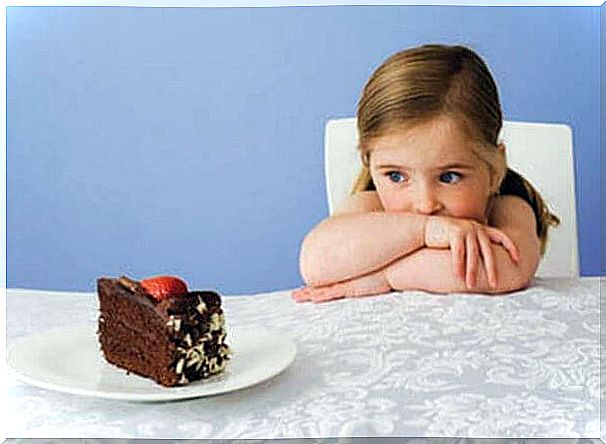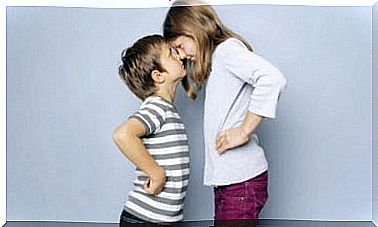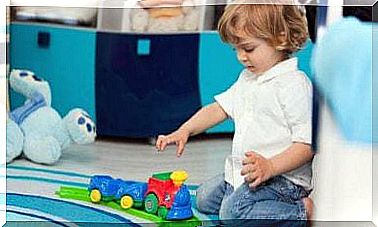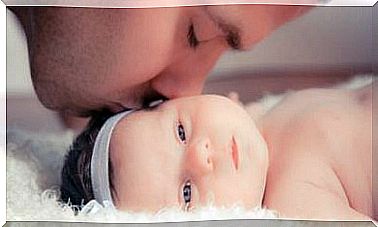Why Do Children Contradict Us?

It will have happened to you too: your child does something he should not do, you calmly explain to him that it is not done and, after a while, you realize that he has started again. Why do children contradict us?
If at this point, you repeat again that it is not done, the answer will be the exact opposite of your indications. Then switch to serious tone, steady gaze and persevere. Nothing. The child is openly contradicting you.
Now you are angry and not even the harshest tones work. Lose but calm down and start thinking about punishment. Yes, precisely that “punishment” that you had proposed not to use, in line with your respectful educational style. Then you will be assailed by doubt.
What happens? Because it does not work? Why does he keep contradicting me, ignoring what I’m telling him? In today’s article we will find out why children contradict us.
Young children do not have self-control skills therefore, if they feel an impulse, the chances of them controlling it are minimal, if not nil.
This urge can arise in different situations, either out of frustration or sometimes even out of joy. The causes are in fact the most varied. But, once we have pointed out that that thing is not done, why does he repeat it?

The reasons children contradict us vary with age
It is not true that children contradict us, they are just learning the cause-and-effect relationship.
Children are like little scientists, with their brains programmed to learn as many things as possible, in the shortest possible time. This learning requires exploration which, in turn, often clashes with our wishes as parents.
The brain is constantly pushing him to discover things, so it’s not like he’s not listening to you. The problem is that between listening and discovering, his brain will always choose the latter.
In a nutshell, this means that children use their parents and close people as a test bed to discover the world around them.
If you do something that piques their interest, the child will try to cause the condition that triggered that reaction again, to observe it again and try to draw their own conclusions.
If they have directly provoked the reaction, they will find it even more fascinating, because they discover that they have a certain effect on us. It is a very powerful feeling for the baby.
The more our reaction is interesting and curious, the more chances there are that the triggering cause will repeat itself. If, with each attempt, your answer changes constantly, it will be more difficult for him to understand what is happening and he will try to repeat it several times to come to a conclusion.
In these cases, the ideal is to respond with a firm but neutral reaction, almost boring and always the same.
When do children learn to control their acts?
A recent study, published by pediatricians, analyzes the difference between the age at which parents believe that children can control their actions and the age at which, from a neurological point of view, they develop this type of ability.
According to this study, most parents believe babies should be able to control their impulses by age 2. Instead, neuroscience has shown that this ability begins to develop between the ages of 3 and 4 and continues to develop slowly until the age of 20, when it reaches its fullness.
This difference between the expectations of the parents and the reality of the child causes many of us to think that children contradict us on purpose, but this is not the case.
Understanding this reality shows the absurdity of punishment or penalizing children for behaviors that are entirely in line with their development and that, in reality, are beyond their control.

Promote emotional intelligence
In the life of human beings, emotions have an enormous weight. While we have been teaching ourselves to repress our emotions for many years, science has shown that this denial has devastating effects.
For this reason, it is very important to teach children to manage their emotions: feel them, express them in a healthy way and learn to listen and accept them without judging.
A child who learns to identify and name his emotions, who knows that his parents and relevant adults will recognize and respect them, and who is confident that what he feels is completely normal, is more likely to become a child. teenager who communicates best.
Gradually, this way in which the behavior is often used to communicate needs or emotions with which they do not feel comfortable, or that frighten them, will disappear, replaced by the word.
All stages of development require years of transition in which emotions, feelings and doubts produce insecurity and maura. And it is precisely these moments of change that represent the most difficult challenges for parents.
But if you stick to a style of accompaniment to growth that promotes emotional intelligence, which looks for the cause rather than the correction of a simple attitude, you will be able to teach your child to become familiar with their emotions. In this way, you will pave the way to healthy emotional growth.









